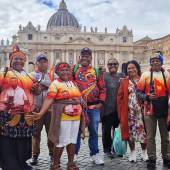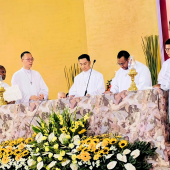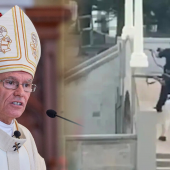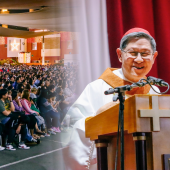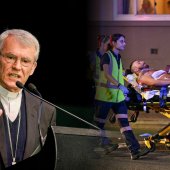Enga Choir Boy from Papua New Guinea Wins Gold at Global Singing Contest in Germany
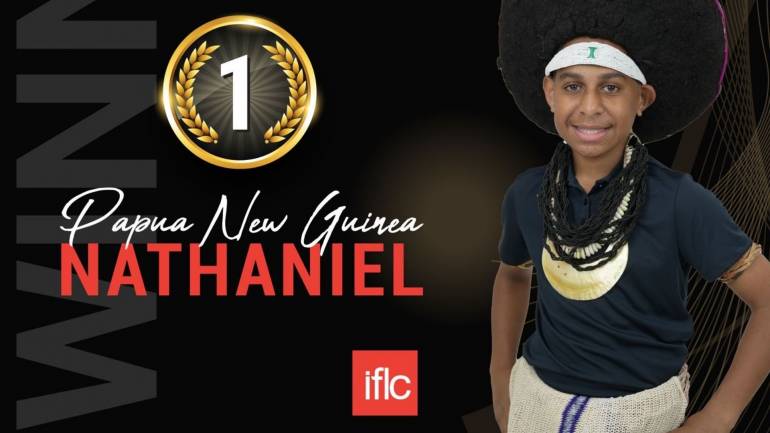
A young Enga boy from Papua New Guinea won first prize in the singing contest at the 23rd edition of the International Festival of Language and Culture (IFLC), held in Germany on 27 June. The contest was held under the theme “Colors of Voices, Echoes of Peace.”
Representing a nation often underrepresented on the global stage, young Nathaniel Apasol Kandikasi, who hails from Laiagam, Enga Province, delivered a soul-stirring performance. With a voice that resonated like the ancient mountains of Enga and a song laced with indigenous melodies, Nathaniel brought to life the ancestral sounds of Papua New Guinea in a contemporary musical form.
Singing in Tok Pisin, Enga, and English, he wove together the story of his people’s relationship with land, language, and spiritual tradition. The judges praised his “emotive depth, cultural integrity, and vocal control.”
Nathaniel’s win marked the first time a Papua New Guinean artist claimed the top honour at IFLC, a historic moment for his country and a testament to the richness of Melanesian cultural heritage.
For Papua New Guinea (PNG), Nathaniel’s win symbolizes more than a musical achievement—it is a cultural awakening. PNG is home to over 850 languages, making it the most linguistically diverse country in the world, yet its voices are often absent from international artistic conversations. Nathaniel’s victory brings that silence to an end.
Educated in Wabag and raised in the highlands of Enga Province, Nathaniel learned to sing in church choirs. His passion for music grew through community performances, local festivals, and Catholic youth groups. When asked what inspired his song, he said:
“I wanted to honour my people’s story, their suffering, joy, and faith. Our language is our identity. Singing in Tok Pisin and Enga was my way of saying: ‘We are here, and we matter.’”
In winning, Nathaniel also opened the door for other young Papua New Guineans to follow their dreams and share their culture with the world.
Second place went to Amalia Ishmeteva of Germany, while the third spot was shared by Keysa Aisyah Fitri of Indonesia and Gurbani Kaur Nanda of the USA.
Since its inception in 2003, the International Festival of Language and Culture (IFLC) has grown into one of the world’s most cherished platforms for young people to express their cultural identities and promote global harmony.
Originating from the efforts of educators and cultural advocates aiming to foster peace through education and language, IFLC now attracts thousands of participants from over 160 countries each year.
The festival’s mission is clear: “Promoting universal human values through the power of language and art.” By giving voice to the youth of the world, IFLC showcases not only talent but also resilience, hope, and the spirit of cooperation.
Every edition of IFLC is a colorful mosaic of cultural performances, multilingual songs, traditional dances, and spoken word poetry—all performed by students still in their formative years.
For many, IFLC is their first opportunity to share their heritage on a global stage. For others, it marks the beginning of a journey in cultural ambassadorship and global citizenship.
Radio Veritas Asia (RVA), a media platform of the Catholic Church, aims to share Christ. RVA started in 1969 as a continental Catholic radio station to serve Asian countries in their respective local language, thus earning the tag “the Voice of Asian Christianity.” Responding to the emerging context, RVA embraced media platforms to connect with the global Asian audience via its 21 language websites and various social media platforms.









